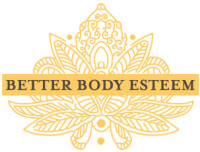Once you start talking openly and honestly about concerns or feelings about the body, some serious core issues may come to the surface. In therapy we can deal with family history, anger and other emotions, all types of abuse, sadness and depression, and shame.
There’s a big correlation, in fact, between food and shame. I attended a fascinating seminar on that topic back in 2007. People can feel a lot of shame around eating, and can also use eating to cover up or escape from their shame. Not being able to control their eating can make people feel defective, as does not being able to lose or gain weight. In their book Facing Shame, Fossum and Mason describe a shame-based cycle, where we perpetuate shame with compulsive and self-abusive behaviors.
Binge eating numbs out the shame around interpersonal issues, then shame about the binge takes over the deeper shame about the self. Purging may seem like an emotional relief that reduces shame, as does restricting, where shame about self is displaced into food, and then minimized, controlled or avoided.
Shame is directly related to low body esteem and low self-esteem, which people may have as a result of verbal, physical or sexual abuse, feeling abandoned, or not having our needs met as children and carried into adulthood. The best people can still have parenting issues, particularly if they have a radically different temperament than their children, such as the parent being very laid back, while the child is very active or vice versa. This can have disastrous consequences in terms of self-esteem and shame – the feeling of not fitting in or not being good enough. This is referred to in psychology as “goodness of fit.”
Parents can instil shame directly, e.g., “Shame on you!” “You’re embarrassing me!” or “You should be ashamed of yourself!” It can also be implied less directly, through blame, humiliation or unrealistic expectations, perfectionism, or comparing one person to another.
The family dinner table can become a battleground where a child is criticized for eating too much or too little, and that just strengthens the connection between food and shame.
The good news is that shame can be healed, and there are ways of busting through shame. This is something we can address in therapy, and we’ll also be doing some workshops about shame at White Picket Fence Counseling Center.
This post was originally published on the White Picket Fence Counseling Center blog at https://whitepicketfencecounselingcenter.com/facing-the-shame-of-low-body-esteem.html.
